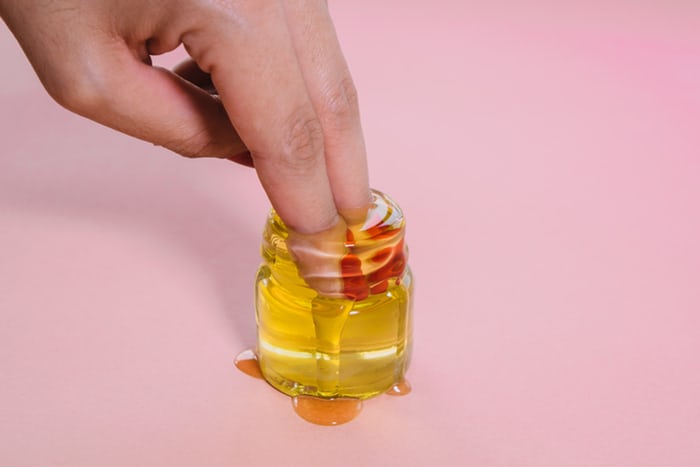Sex Education
MASTURBATION – Causes, Treatment and side effects

Last Updated on November 18, 2025 by Joshua Isibor
ADDICTION TO MASTURBATION
Some people can and do develop an addiction to masturbation. You may be spending too much time masturbating if masturbation causes you to:
- skip your chores or daily activities
- miss work or school
- cancel plans with friends or family
- miss important social events
Addiction to masturbation can harm your relationships and other parts of your life. Masturbating too much may interrupt your work or studies, which can lower productivity.
It may also hurt your romantic relationships and friendships because you don’t spend as much time with your loved ones as you used to, or don’t pay attention to their needs.
If you’re worried you may have an addiction to masturbation, speak with your doctor or a counselor about ways to cut down on masturbating.
Talk therapy can help you manage your addiction. You could also cut down by replacing masturbation with other activities. Next time you have an urge to masturbate, try:
- going for a run
- writing in a journal
- spending time with friends
- going for a walk
DOES MASTURBATION CAUSE A DECREASE IN SEXUAL SENSITIVITY?
For women who have sexual dysfunction, enhanced stimulation — including masturbation — can help increase sexual desire and sensitivity.
Two 2009 studies found that vibrator use among women and men has been linked to an increase in desire, arousal, and overall sexual function. Women also reported an increase in lubrication, while men reported better erectile function, according to the studies.
Masturbation can affect sensitivity during sex for men because of their technique. Research has shown that too tight of a grip on a penis during masturbation can decrease sensation.
Sexual health experts recommend changing your technique during masturbation to restore sensitivity levels during sex.
BENEFITS OF MASTURBATION
Masturbation is a healthy sexual activity. It has many benefits for your physical and mental health.
There are limited studies on the benefits of masturbation, but there are studies on sexual intercourse and stimulation.
Research and anecdotal reports suggest that sexual stimulation, including stimulation through masturbation, may help you:
- relieve built-up stress
- sleep better
- boost your mood
- relax
- feel pleasure
- relieve cramps
- release sexual tension
- have better sex
- better understand your wants and needs
Couples may also mutually masturbate to explore different desires, as well as avoid pregnancy. Self-pleasuring also helps you prevent sexually transmitted infections (STIs).
MASTURBATION DURING PREGNANCY
Hormone changes during pregnancy cause some pregnant women to feel heightened sexual desire. Masturbation is a safe way to release sexual tension during pregnancy.
Self-pleasure may also help ease pregnancy symptoms, such as lower back pain. You may feel mild, irregular cramping, or Braxton-Hicks contractions, during and after orgasm.
They should fade away. If the contractions don’t disappear and become more painful and frequent, contact your doctor right away.
Masturbation may not be safe for women with high-risk pregnancies. This is because an orgasm can increase your chances of labor.
Masturbation is a normal part of sexual health. It’s a fun activity that can be a safe way to explore sexuality and self-pleasure.
However, if masturbation prevents you from performing daily tasks or it interferes with your work or responsibilities, it may be time to try to create a better relationship with the activity.
HOW TO STOP MASTURBATING
Learning to stop masturbating is a process. You must overcome urges and behaviors you’ve practiced for months, possibly years. This can take time. But it’s possible
As with any other behavior that feels out of control, retraining yourself to not masturbate requires a series of steps and strategies. These can include the following approaches
👇👇
Talk a therapist
When you’re ready to develop a healthier relationship with masturbating or to stop entirely, talk with your doctor. They can refer you to a counselor, psychologist, or psychiatrist who specializes in sexual health.
Be honest
Masturbation often carries a stigma. Some religious, cultural, and spiritual traditions associate masturbation with immorality or sin.
Masturbation is neither bad nor immoral. It’s normal and healthy. If you feel guilty or upset because you masturbate, tell your therapist or doctor. It’s very important you two get to the root of your feelings so you can overcome them
Take your time
Therapy isn’t a one-stop-shop. A single visit is a step toward help, but you should expect to see a therapist who specializes in sexual health for several weeks or months.
As you continue to meet and talk, you will begin to feel more comfortable. This can help you be more honest and forthcoming about your feelings and behaviors
Stay busy
Keeping a full schedule will cut down on the opportunities you have for masturbation. Find activities that are self-soothing, engaging, or exciting.
This can include exercise, mindfulness, yoga, discovering a new hobby, making dates with friends for dinner, or exploring new museums or exhibits. When you keep busy, you reduce opportunities for masturbation
take care of your body
A healthy diet and exercise are good for your body in many ways. For people trying to stop masturbating, a new emphasis on caring for yourself may reduce urges or motivate to resist. It can also provide a new focus for your energy and efforts
Develop strategies
With the help of your doctor or therapist, identify your trouble times. Maybe you masturbate at night before bed. Maybe you masturbate in the shower every morning.
If you can identify when you’re most likely to masturbate, you and your doctor can come up with activities and plans to overcome the urge and the learned behaviors
Find a support group
Accountability is important for anyone trying to modify behavior that feels out of control. It can also help you develop new behaviors. Support groups are available for people with out-of-control sexual behavior.
Ask your doctor or therapist if there’s a support group in your area. Likewise, online support groups may be helpful for people who can’t meet with traditional in-person support groups
Limit your alone time
Downtime can be difficult for people trying to reshape behaviors. Try to move activities you’d normally conduct alone to a more public space.
For example, if you like to watch sports, go to a sports bar or pub instead of staying at home. If you’re anxiously awaiting new episodes of a show, host a viewing party so friends come to your house
Wear extra clothes at night
Underwear provides only a slight physical barrier between you and your genitals. But rubbing or touching yourself at night may mindlessly encourage you to masturbate. Wear an extra layer of clothing or two to reduce the sensation if you do rub yourself
Stop watching pornography
The stimulation from pornography may be too strong to overcome. Take measures to prevent yourself from accessing pornography.
Throw out any movies, magazines, or other content. Move your computer to a public room in the house so you can’t be alone when using it. You can also install porn-blocking software. More important, identify what the function of your porn use is.
Be patient
Behavior that feels out of control doesn’t form overnight, and it doesn’t end overnight either. Be patient with the process. Commit to the result and understand you may hit stumbling blocks along the way. Determination can see you through the inevitable mistakes and struggles
The term “masturbation addiction” is used to refer to a tendency to excessively or compulsively masturbate.
Here, we’ll explore the difference between compulsion and addiction, and review how to:
- recognize habits that may be considered problematic
- reduce or eliminate unwanted behavior
- know when to talk to a mental health professional
IS IT REALLY AN ADDICTION?
There’s some debate around whether you can truly be “addicted” to masturbation.
Although there’s been a push to medically recognize masturbation addiction, some say it should be recognized as a compulsion, not an addiction.
There’s no clinical diagnosis for masturbation addiction. It’s not recognized as addictive by the American Psychological Association (APA).
Masturbation addiction also isn’t recognized as a mental health condition by the recent edition of the Diagnostic and Statistical Manual of Mental Disorders (DSM-5), which sets the criteria for diagnosing mental health conditions
👉Because the APA doesn’t consider masturbation to be truly addictive, people often refer to “compulsive masturbation” instead of a “masturbation addiction.”
WHAT DOES IT LOOK LIKE?
Frequently masturbating doesn’t mean you have a problem or addiction.
Generally speaking, there’s only cause for concern if you feel your behavior has become excessive or obsessive.
The following scenarios, for example, maybe signs of a masturbation compulsion:
- Masturbating takes up a lot of your time and energy.
- Your home, work, or personal life is suffering because of masturbation.
- You might be late to meetings, cancel events, or leave social appointments early to masturbate.
- You masturbate in public or in uncomfortable places because you can’t wait to get home.
- You masturbate even when you don’t feel aroused, sexual, or “horny.”
- When you feel negative emotions — such as anger, anxiety, stress, or sadness — your go-to response is to masturbate for comfort.
- You feel guilty, distressed, or upset after masturbating.
- You masturbate even if you don’t want to.
- You find it difficult to stop thinking about masturbation.
WHAT CAUSES IT?
Masturbation has several health benefits. It can help you de-stress and lift your mood.
If you’re under a lot of stress, or if you have a mood disorder, you might use masturbation to relax and feel better.
This isn’t wrong in itself, but you might become obsessed with chasing the high of orgasm. This could lead to masturbation that becomes problematic for you.
Compulsive sexual behaviors might also be neurological, as Mayo Clinic points out. An imbalance of natural brain chemicals and neurological diseases like Parkinson’s might lead to compulsive sexual behavior. However, more research is needed.
Other research in animalsTrusted Source suggests behavioral addictions might alter the brain’s neural pathways similarly to substance use disorders. This may lead you to want to do that behavior more often, like masturbate
WHAT TREATMENT OPTIONS ARE AVAILABLE?
A doctor or other healthcare provider may recommend one or more of the following treatments.
Therapy
Talk therapy can be a great way to figure out whether masturbation is having a negative impact on your life and, if so, how to address it.
Your therapist might ask questions about:
- your feelings and behavior around masturbation
- whether you engage in other compulsive sexual behaviors, like partner sex and porn use
- problems caused by your compulsive masturbation
- past traumas
- your current stressors
This will help your therapist determine whether your behavior is considered compulsive.
They can also help you process your feelings, figure out the root cause of your compulsive behavior, and find a way to stop or reduce the behavior.
Remember that what you tell your therapist is entirely confidential. They’re not allowed to discuss your sessions with anybody else.
Support groups
There are a number of different support groups for compulsive sexual behavior.
Your therapist or doctor might be able to recommend one, as could a local addiction center.
Many people prefer online support groups and forums, which you might also find helpful.
Medication
There’s no medication for treating compulsive masturbation.
However, compulsive sexual behaviors are sometimes related to underlying mental health conditions, such as:
- depression
- bipolar disorder
- anxiety disorder
In these cases, prescription medication could help with compulsive behaviors.
WHAT IF IT’S LEFT UNTREATED?
Compulsive behaviors may worsen over time.
This could put a strain on your relationships — including your romantic and sexual relationships — as well as your mental health.
This, in turn, could lead to lower sexual satisfaction and self-esteem.
The bottom line
No matter whether you call it an addiction or compulsion, it’s important to remember that the behavior is treatable.
A trained therapist can work with you or your loved one to overcome unwanted behaviors and improve your quality of life.
Click here to Read ERECTILE DYSFUNCTION
Originally posted 2020-07-27 17:13:44.

-

 Text Messages2 years ago
Text Messages2 years agoBEST LOVE CONFESSION MESSAGES FOR HER OR HIM
-

 Health4 months ago
Health4 months ago5 Unknown Ways To Maintain Skin Health
-

 Sex Education2 months ago
Sex Education2 months ago10 Simple Hack to Make a Girl Send Her Nudes
-

 Text Messages2 years ago
Text Messages2 years agoHappy Birthday Cousin, wishes and messages
-

 Text Messages2 years ago
Text Messages2 years agoHeart Touching RIP Uncle Quotes
-

 Uncategorized3 months ago
Uncategorized3 months agoHOW TO KISS A BOY FOR THE FIRST TIME
-

 Text Messages2 years ago
Text Messages2 years agoFreaky and Dirty Paragraphs For Him Copy And Paste Yahoo
-

 Text Messages2 years ago
Text Messages2 years agoBest Good Luck Wishes Before and After Surgery, for Family and Friends













